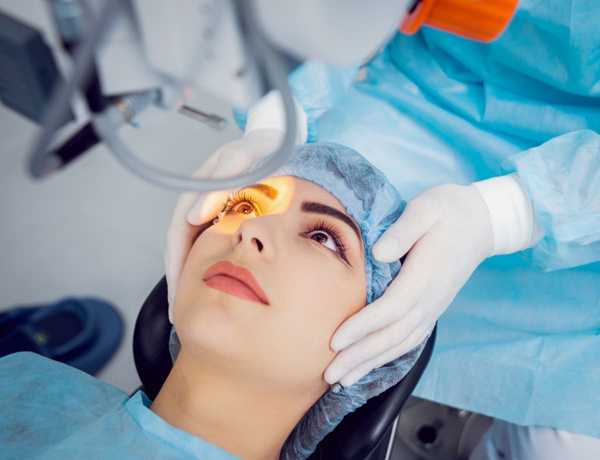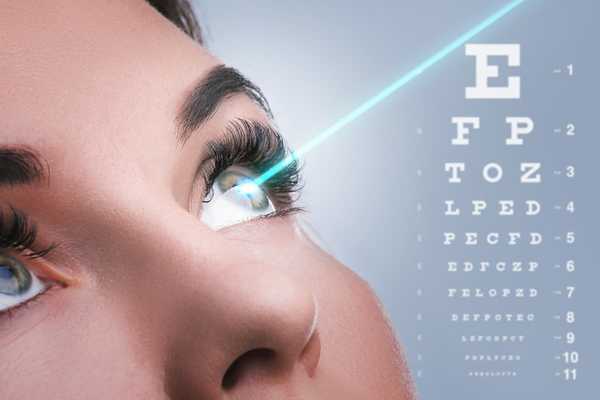How Does Laser Eye Surgery Improve Vision? Discover the Benefits and Recovery Process for Patients
Did you know that laser eye surgery can transform your vision in minutes? Laser surgery for eyes has revolutionised vision correction, providing an alternative to glasses and contact lenses. This article will guide you through various types of laser eye surgery, including LASIK and PRK, and help you understand their benefits and risks. We'll also cover recovery times and what to expect during the healing process.
Did you know that laser eye surgery can transform your vision in minutes? Laser surgery for eyes has revolutionised vision correction, providing an alternative to glasses and contact lenses. This article will guide you through various types of laser eye surgery, including LASIK and PRK, and help you understand their benefits and risks. We'll also cover recovery times and what to expect during the healing process.

What is laser eye surgery?
Laser eye surgery encompasses a group of procedures that use laser technology to improve vision. The most common types include LASIK (Laser-Assisted In Situ Keratomileusis) and PRK (Photorefractive Keratectomy). Both methods aim to alter the shape of the cornea, the clear front surface of the eye, enabling it to focus light more accurately on the retina, thus correcting refractive errors like myopia, hyperopia, and astigmatism.
LASIK involves creating a flap in the cornea that is temporarily lifted, allowing the laser to reshape the underlying tissue before the flap is replaced. PRK, on the other hand, involves removing the outer layer of the cornea entirely and then using the laser to reshape the corneal tissue beneath. This makes PRK less suitable for those with demanding lifestyles since recovery can take longer. Both procedures are often performed in an outpatient setting, lasting approximately 15 minutes for both eyes.
Benefits of laser eye surgery
The advantages of laser eye surgery are many. Most notably, many individuals experience immediate improvement in their vision, often achieving 20/25 sight or better after the procedure. This can significantly enhance daily activities, from driving to sports without relying on corrective lenses.
Another noteworthy benefit is the long-term cost-saving. Although the initial investment may seem high, many patients find that their dependence on glasses and contacts decreases significantly, eliminating ongoing costs for lenses, solutions, and regular optometrist visits.
Furthermore, advancements in laser technology have improved the safety profile of these surgeries. Complications are rare, and satisfaction rates are high, with many patients reporting an enhanced quality of life post-surgery. Most clinics offer a free consultation, allowing potential patients to ask questions and determine if they’re suitable candidates for surgery.
Risks and considerations
Like any medical procedure, laser eye surgery carries potential risks. Some patients may experience dry eyes, glare, halos, or difficulty with night vision, particularly during the healing process. It’s crucial to discuss these possibilities with your surgeon and weigh them against the potential benefits.
Certain factors might disqualify someone from undergoing surgery, such as certain medical conditions, pregnancy, or having a significant prescription that hasn’t stabilized. Additionally, age can also play a role; while corrective procedures are available for older adults, their outcomes may vary. The ideal candidate is typically over 18 years old and has had a stable prescription for at least two years.
Before scheduling the procedure, a thorough eye exam is necessary. This evaluates corneal thickness, pupil size, and overall eye health. Surgeons use this data to recommend the most appropriate procedure, ensuring tailored treatment for each patient’s unique vision requirements.
Recovery process
Recovery from laser eye surgery varies depending on the procedure. After LASIK, patients typically notice improved vision almost immediately, though some minor discomfort is common and usually resolves within a few hours. Most patients return to regular activities within a day or two but are advised to avoid strenuous exercise or swimming for at least a week.
For those who undergo PRK, recovery might take longer, as the outer layer of the cornea has to regenerate. While early vision recovery opens up quite quickly, achieving optimal vision may take several weeks. Pain or discomfort can also be more pronounced than with LASIK, necessitating pain relief medications or eye drops prescribed by the doctor.
It’s crucial to attend follow-up appointments to monitor healing and ensure there are no complications. Adhering to post-operative care instructions, such as avoiding touching or rubbing the eyes and using prescribed eye drops, is vital for a smooth recovery.
Choosing the right clinic
Selecting the right clinic for laser eye surgery is an essential step toward a successful outcome. Start by researching clinics in your area, and look for those with certified ophthalmologists experienced in laser procedures. Check their credentials and read reviews from previous patients to gauge their satisfaction levels.
A reputable clinic will offer comprehensive consultations where you can discuss your medical history, ask questions about the procedures, and learn about their approach to care. This is also an excellent opportunity to assess their technology; advanced clinics often use the latest laser techniques to improve precision and safety.
Inquire about the costs involved and whether consultations, follow-up appointments, and potential enhancements are included in the package. Transparent pricing helps prevent unexpected expenses down the track. Lastly, ensure they have strict protocols for hygiene and patient safety, particularly post-COVID-19, as this remains a priority for many healthcare facilities.
Conclusion
In summary, laser eye surgery offers a promising solution for many individuals seeking freedom from glasses and contact lenses. While procedures like LASIK and PRK have their benefits, they also come with potential risks and challenges that must be considered carefully. The recovery process varies depending on the type of surgery performed, and selecting a reputable clinic is vital for ensuring a successful outcome.
As the technology continues to advance, more individuals are finding the confidence to opt for these life-changing procedures. If you're considering laser eye surgery, take the time to understand all aspects, from benefits and risks to the recovery process and choosing the right clinic, to make informed decisions about your vision health.








